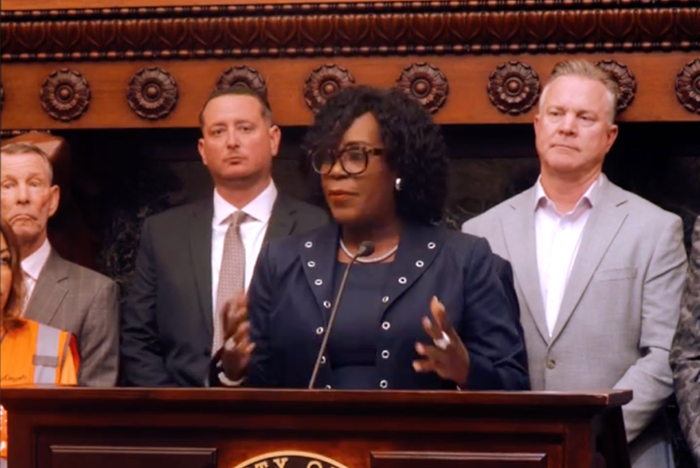It’s no secret that some nonunion construction jobs are rife with low pay, unsafe practices and dodgy adherence to laws.
The big picture: Philadelphia Mayor Cherelle Parker recently affirmed a high-road commitment to safer construction workplaces, responsible contractors and high-quality jobs for workers.
With the strong backing of building trades labor unions like Local 98, Parker directed agencies to use project labor agreements in taxpayer-funded construction projects in the city.
“The City of Philadelphia is unapologetic about making sure that when we work on public work projects, any contractor interested in working and competing will have the ability to do so—but this agreement ensures that every contractor is playing by the same set of standards,” Parker said, adding that it guarantees employees are paid fairly, receive health benefits, work in a safe environment, and are properly trained to complete the job.
Local 98 business manager Mark Lynch said the Oct. 14 order will benefit workers and their high-road contractors.
“By creating a fair playing field that both union and nonunion contractors must abide by, it helps our contractors compete for jobs—jobs that now come with real standards,” Lynch said. “Our workforce is the best trained and most experienced to get these city projects done on time, on budget, and with local, tax-paying Philadelphians doing the work.”
Why it matters: PLAs are collectively bargained multi-trade contracts that set pay standards, require local hiring and set procedures for dispute resolutions.
PLAs:
1. Establish employment terms — setting wages, benefits, and working conditions
2. Ensure project stability — preventing strikes, lockouts, and other costly work stoppages
3. Provide dispute resolution — ensuring quick resolution of labor disputes
4. Apply to all contractors — union and nonunion alike
Zoom out: Used primarily in the construction industry, PLAs are effective tools to control costs and ensure efficient project completion.
Parker’s PLA directive complements a similar statewide order signed last year by Gov. Josh Shapiro.

